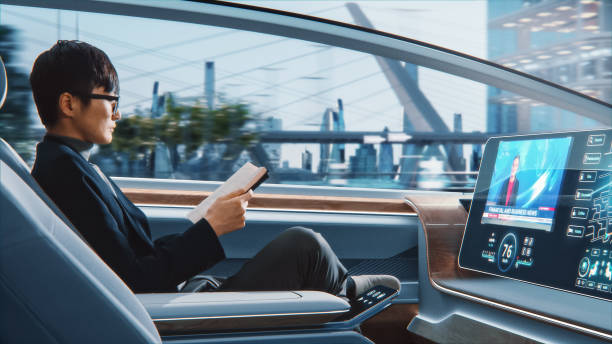Unraveling the Legal Implications of Autonomous Vehicles
As technology evolves at an unprecedented rate, so does the need for legislation to regulate new advancements. One such innovation is autonomous vehicles, which are poised to revolutionize the transportation industry. This article will delve into the legal implications of these self-driving machines, exploring their history, current legal status, and potential societal impact.

A Historical Perspective on Autonomous Vehicles
The concept of autonomous vehicles has been a part of human imagination for decades, but it wasn’t until the 21st century that this vision began to materialize into reality. Companies like Tesla, Waymo, and Uber have been at the forefront of this technological leap, developing autonomous vehicles that can navigate roads with little to no human intervention. However, the swift onset of this cutting-edge technology has outpaced the development of legislation regulating its use.
Current Legal Landscape: A Patchwork of Regulations
In the United States, the legal framework governing autonomous vehicles is a patchwork of state and federal laws. The National Highway Traffic Safety Administration has issued guidelines for self-driving cars, but these are voluntary and lack enforcement mechanisms. Meanwhile, state laws vary widely, with some states embracing the technology and others banning it outright. This disjointed approach has led to confusion and uncertainty, highlighting the need for comprehensive federal legislation.
Legal Challenges and Questions
Autonomous vehicles present unique legal challenges. For instance, who bears responsibility in the event of an accident involving a self-driving car? Is it the manufacturer, the software developer, the owner, or the passenger? The answer is not clear-cut and may depend on factors such as the level of automation and the specific circumstances of the accident.
Moreover, there are questions about how existing laws, such as traffic regulations, apply to autonomous vehicles. For example, can a self-driving car be pulled over for a traffic violation? And who would receive the ticket if there’s no human driver?
The Societal Impact of Autonomous Vehicles
Beyond legal considerations, autonomous vehicles could have a profound societal impact. They promise to increase mobility for individuals who are unable to drive, such as the elderly or those with disabilities. Additionally, proponents argue that self-driving cars could reduce traffic accidents, as most are caused by human error.
However, this technology also raises concerns. There are fears about job loss in driving-related industries, and questions about how autonomous vehicles could affect urban planning and public transportation. Furthermore, ethical dilemmas arise, such as how a self-driving car should react in a situation where an accident is unavoidable.
Navigating an Autonomous Future
The advent of autonomous vehicles has outpaced the development of laws to regulate them, creating a legal landscape that is as uncertain as it is exciting. It is clear that comprehensive legislation is needed to address the many questions and challenges that self-driving cars pose.
As society moves towards an autonomous future, it is crucial to strike a balance between embracing innovation and safeguarding public interests. The legal implications of autonomous vehicles are complex and far-reaching, necessitating thoughtful and proactive legal analysis.




